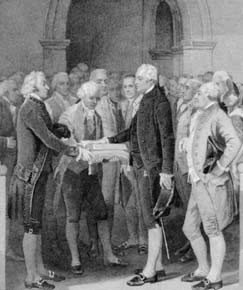“To say that Congress spends like drunken sailors is an insult to drunken sailors.” ~ President Ronald Reagan
“The difference between congressmen and drunken sailors is that drunken sailors are spending their own money.” ~ Rep. Tom Feeney
 In yet another epic debasement of human-kind VH1 has a new reality TV showcasing the spoiled, selfish, and mean daughters of the richest of the rich. These careless women think as little of wasting $1,000 as most people would a single penny. Coincidence? Maybe not. The timing seems perfectly synchronized to infect the debate regarding estate taxes specifically and taxes on the super rich specifically. Do we really want heirs like this inheriting their parents millions? Or should we use the money to the greater good of the country? So the debate is framed in the subtext of this show any way.
In yet another epic debasement of human-kind VH1 has a new reality TV showcasing the spoiled, selfish, and mean daughters of the richest of the rich. These careless women think as little of wasting $1,000 as most people would a single penny. Coincidence? Maybe not. The timing seems perfectly synchronized to infect the debate regarding estate taxes specifically and taxes on the super rich specifically. Do we really want heirs like this inheriting their parents millions? Or should we use the money to the greater good of the country? So the debate is framed in the subtext of this show any way.
As the recent shouting match regarding extending the Bush era tax cuts and the future of the estate tax have shown, who to tax, how much to tax, and what to use those taxes for is a contentious issue on all sides. Everyone, it seems, has an opinion, and most of those opinions are angry and emphatic. But what is happening behind the scenes? Would higher taxes on the rich benefit the poor? Would stricter rules for welfare help the rich? Does one group “deserve” help more than another? Where are the reality TV shows about people who are impoverished working hard and getting to a place where they no longer need welfare? How many times have you clicked on the television and seen a story of a wealthy heir using their free time to volunteer, or their money to benefit the world?
Just look at the response to the recent “Giving Pledge.” Warren Buffett and Bill Gates got the ball rolling, and dozens more of the richest billionaires have promised to give at least half of their wealth to charitable causes. What has the predominate media response been? Look at the headlines:
“Giving Pledge Looks Good – But Does It Have Substance?”
“Is Giving Pledge Boosting Charity or Just Billionaire PR?”
Why all this cynicism – and is it good for anyone?
In the book Born for Love – Why Empathy is Essential and Endangered the authors argue that economic disparity is just as bad for the rich as it is for the poor:
“Economic inequality increases this distance [in culture and thereby trust] in multiple ways. Probably the most destructive of these is the cynicism that develops from believing that the system is rigged in favor of the wealthy….If the system is unfair, why not try to cheat it? If the rich are ‘getting theirs’ by cheating the rest of us, why shouldn’t the poor fight back by slacking off or by outright theft? From the perspective of the rich, if the poor are lazy and criminal, why should we help them?”
The scriptures warn against both showing favoritism to the rich and to the poor (Leviticus 19:15), and God’s system included a “reset” button of sorts every 50 years when all the wealth (in the form of land) went back to its original families, all debt was forgiven, and all the slaves set free.
Perhaps we would all benefit more if we truly took the time to understand the complexities of the issues, rather than allowing people to frame the debate around a snapshot of individual cases rather than looking at the whole. Instead of seeing these issues as “us” versus “them” we should start broadening our thinking and look outside the box for unique ways to help the whole society gain. Other ideas need to be explored and discussed with both a realization that we have a responsibility to care for the poor as well as create a society that allows each person to give freely.
One possible solution that has been posited elsewhere on this site it the “flat tax.” Here is another for your consideration: the “fair tax.” Basically, the idea behind the fair tax is to take all the guess work out of how much we are being taxed, where that tax is coming from, and the waste of time and money that is the IRS and filing requirements each year. All income and payroll taxes would be eliminated and instead a single sales tax instituted. Cost of goods would not go up however, as companies would save money on payroll taxes and be able to pass those savings on to consumers. It would encourage savings, investment, and giving over spending which are the keys to the long term growth and success of any country’s macro-economic forecast. It would allow taxpayers to know exactly how much they are paying, and give a true number from which to discuss future tax increases and cuts rather than the convoluted system we deal with today. The simplicity of it would reduce hours of headache filing each year, and ensure that no one (rich or poor) skips out of the system.
So what do you think? Take some time to read and compare – then send Congress a message that we are not happy with the status quo that allows them and their lobbyists to control things through financial maneuvering! We want a system that any American can understand and that brings dignity and hope to everyone!
If you liked this article you may be interested in this product from our sponsor.












